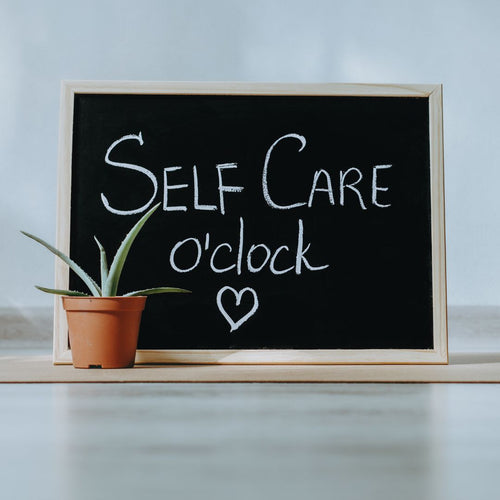
Why is self care so difficult???
As a mental health therapist, I know all too well how much of a buzzword "self care" has become in recent years, often seen as the key to a healthy, balanced life. Yet, despite the growing awareness of its importance, many people still find it difficult to prioritize their own well-being. Whether it’s mental, emotional, spiritual, or physical health, practicing self-care is often easier said than done. But why is that? In this post, we explore the top three reasons that I hear from people as to why they struggle with self-care, and offer practical solutions for how to address these challenges.
1. Lack of Time/Busy Schedules
One of the most common reasons that I come across is simply a lack of time. In today’s fast-paced world, it’s easy to become overwhelmed by responsibilities—work, family, school, or other obligations—that leave little time for yourself. Many people fall into the trap of thinking they need to be constantly productive, leading to burnout and neglect of their personal needs.

The Fix:
The solution here is not necessarily to find more time, but to redefine your relationship with time. Start by acknowledging that self-care is as important as any other task on your to-do list. You prioritize what you value! So, treat it like an appointment that cannot be missed, and schedule it in just like you would a meeting or a deadline. Whether it’s a 10-minute walk in the morning, a 30-minute yoga session, or even a 15-minute break to do nothing at all, integrating small acts of self-care throughout your day can make a huge difference. Remember, self-care doesn’t have to be a long, drawn-out process—it’s about consistency, not perfection.
2. Guilt & Perfectionism
Many people feel guilty when they take time for themselves, especially if they perceive it as being selfish. This is particularly true for women and people of color. Society often praises the idea of the “selfless” person who is constantly helping others, which can lead to feelings of guilt when prioritizing one’s own needs. As a social worker, I know this struggle all too well, lol. In addition, perfectionists may feel that they need to do self-care "perfectly," which can make the task feel overwhelming or impossible.

The Fix:
The key to overcoming guilt and perfectionism is to shift your mindset. Recognize that taking care of yourself is not selfish—it’s necessary. When you take care of your physical, spiritual, mental, and emotional health, you are better able to show up in the world. Self-care is an act of compassion for yourself, which in turn enables you to be more compassionate toward those around you.
If perfectionism is holding you back, focus on progress instead of perfection. Start small and allow yourself to be imperfect. It’s OK if you miss a meditation session or skip a workout. The goal is to make self-care a regular part of your routine, and that doesn’t require flawless execution. Celebrate the small victories, and remember that consistency over time is what matters most.
3. Lack of Knowledge or Motivation
Many people struggle with self-care simply because they don’t know where to start. Self-care isn’t one-size-fits-all; it can look different for everyone, and it’s easy to feel lost when you’re not sure what will truly benefit you. Additionally, when you’re feeling mentally or physically drained, it can be hard to find the motivation to take care of yourself.

The Fix:
The first step is to learn what self-care means for you. Experiment with different practices—journaling, exercising, reading, cooking a healthy meal, or engaging in creative hobbies—and notice what helps you feel rejuvenated. Self-care is not just about bubble baths or massages (or even scented candles lol); it’s about nourishing your body, mind, and soul in a way that feels right for you.
If motivation is an issue, break self-care down into manageable steps. Start with small actions and gradually build up. For example, instead of aiming to work out for an hour every day, try 10 minutes a few times a week. Building momentum with small wins will make it easier to stay motivated. You can also find ways to make self-care enjoyable, whether it’s listening to a favorite podcast while cooking a meal or taking a walk in nature to clear your mind.
Final Thoughts
Self-care isn’t just about pampering yourself; it’s about making sure you’re properly nourished. By understanding the barriers that prevent us from engaging in self-care, we can better address them and develop a routine that works for us. Remember, taking care of yourself is not a luxury—it’s a necessity! Start small, stay consistent, and most importantly, be kind to yourself in the process.
